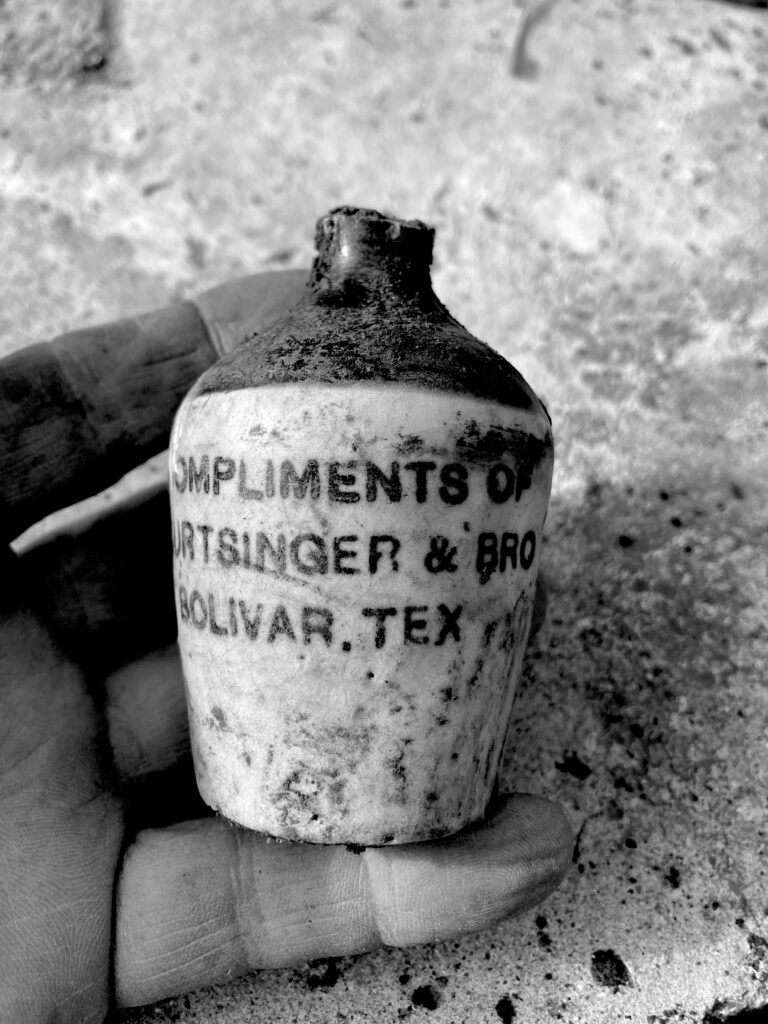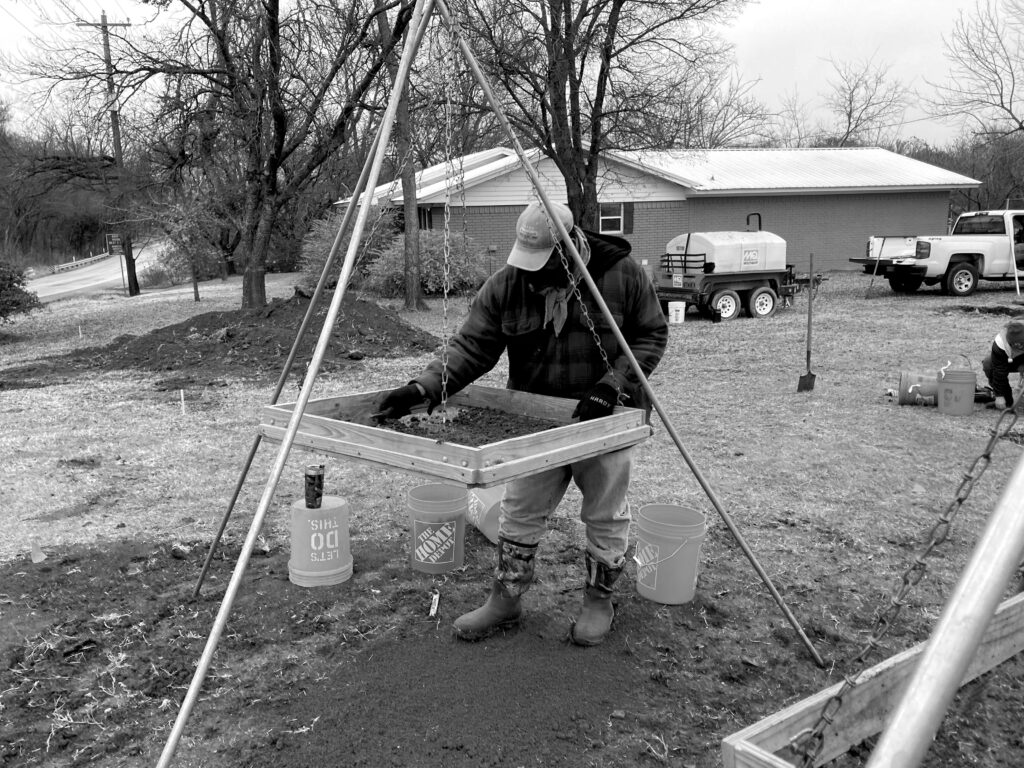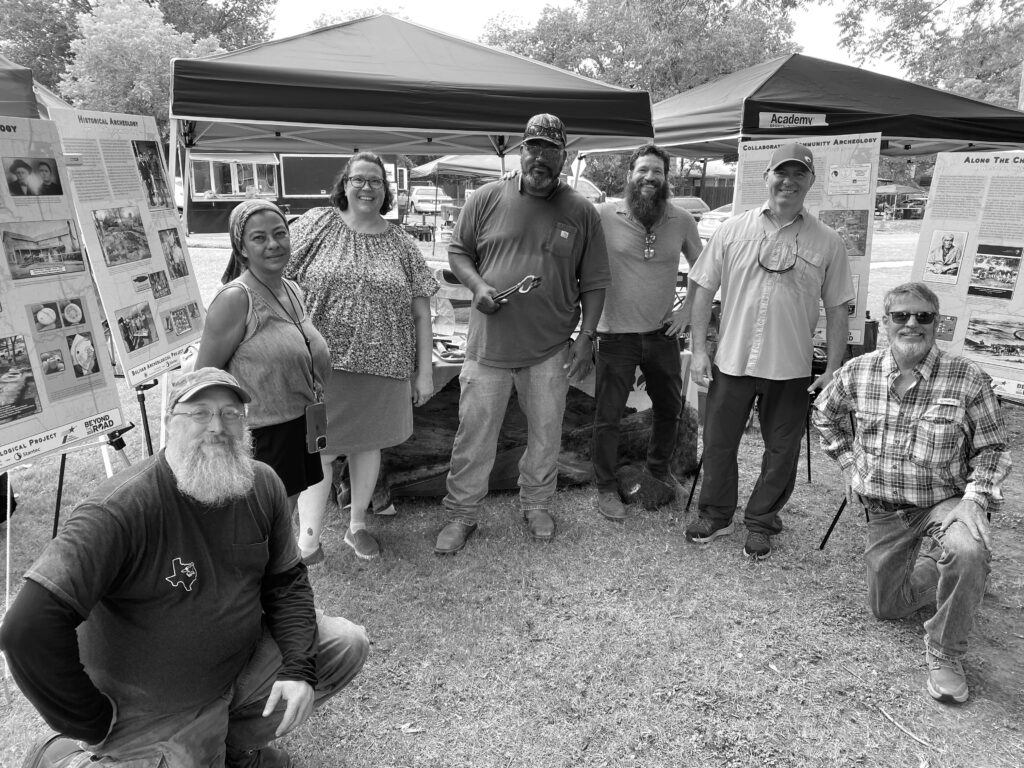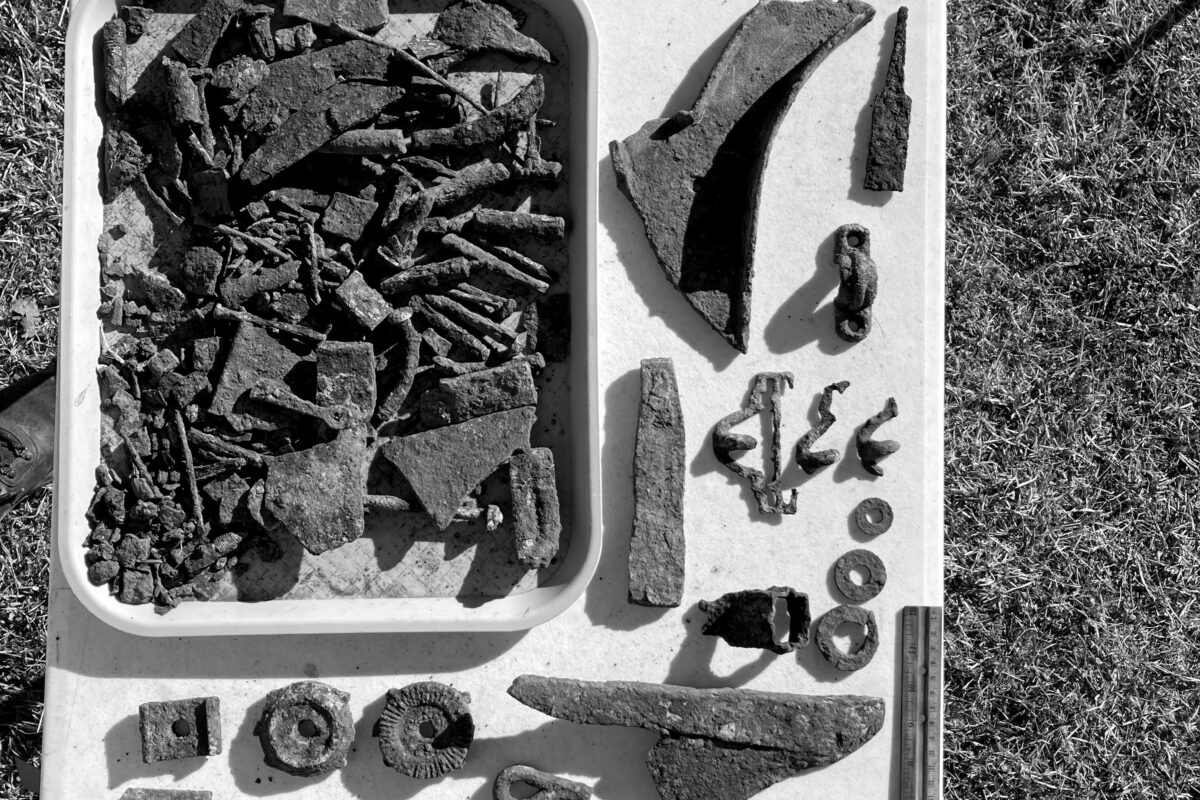In 2019, the Texas Department of Transportation conducted a routine archaeological survey along FM 455 in Denton County ahead of a planned road widening project — and soon discovered something unexpected. Under the North Texas surface, near the community of Bolivar, lay the remains of a freedman’s blacksmith shop.
Before the road work could begin, effectively sealing over the site with asphalt, more investigation was needed. Archaeologist Doug Boyd was appointed by his employer, TxDOT contractor Stantec, to oversee the excavations of both the blacksmith shop and the remains of a nearby hotel. One of the first things he did was call Maria Franklin.

A professor of anthropology at The University of Texas at Austin, Franklin is an archeologist whose research focuses on the post-emancipation experience of Black Texans. She began conducting archeological work over 30 years ago and first worked with Boyd on the Ransom and Sarah Williams Farmstead Project, a collaboration with TxDOT that involved the excavation of a freedman farmstead. As part of that project, which ran from 2009 to 2013, she conducted outreach and interviews with the Williams’ descendants and local residents.
“She knew exactly how to go out into the community and engage with people to bring them on, to build their trust, and to make them a part of the project,” Boyd says. As work began on the new Bolivar Archaeological Project, he hoped she’d be able to do the same thing again.
The Bolivar Archeological Project includes the excavation, contextualization, and analysis of structural evidence and artifacts from two sites in Bolivar: The Tom Cook blacksmith shop and the Sartin Hotel. Both 19th-century sites reflect the history of Bolivar as a frontier town along the Chisholm Trail, a network of paths used to drive cattle from Texas ranches to railheads in Kansas.
Tom Cook, an African American freedman, began working as a blacksmith in Bolivar in 1872, but it was not until 1882 that he was able to buy a plot of land and a shop. Both his smithy and the nearby Sartin Hotel likely serviced passing cowboys and ranchers on the trail as well as local farmers and ranchers.
Throughout the fall and winter of 2020 and early 2021, Stantec archeologists conducted excavations at both sites, revealing a wealth of artifacts including century-old hardware, blacksmithing tools and residue, and wagon parts. Simultaneously, Franklin began leading the project’s community outreach team, including UT Austin grad student Tara Skipton, as they conducted outreach and oral history research around the history and memory of the Black community in Denton County. This research focused on information about Tom Cook’s life post-emancipation as well as the broader sweep of Black life in the area in Cook’s time and beyond.
Franklin began her outreach work by contacting Cook’s descendants, many of whom still live in the Bolivar area, and ultimately was able to interview four family members as well as a number of long-time residents in the area. Among them was Howard Clark, Tom Cook’s great-great-grandson, who ended up taking a strong interest in the project and often joined the field crew on daily excavations. After the archeological work was completed, Clark even began taking blacksmithing classes from a local expert to learn more about his ancestor’s craft.

From the beginning of the research, Clark and Cook’s other descendants became key collaborators across all aspects of the Bolivar Project, from fieldwork and research to report writing, and they continue to help steer the project’s sense of public service.
“We wanted to do something that was more collaborative and to conduct archaeology that is in the public domain and done in partnership with the folks who have a historical connection to the site,” Franklin says. “The idea was to involve the community in a way that we got guidance from them, and especially from the lineal descendants, on the kinds of research outcomes that they would like to see.”
Franklin’s outreach and oral history work also stretched beyond Cook’s descendants to include the larger community. Along the way, she expanded the Bolivar Project’s research timeline to include observations about Denton’s Black community over the past 150 years, from the period directly after slavery through the 20th century.
In interviews with descendants and community members, Franklin asked questions about everything from family dynamics and parent occupations to neighborhood characteristics, leisure activities, education, and social networks. This community knowledge, in collaboration with the discovered artifacts, established the foundation for a case study of Black life in Bolivar and Denton, exploring the shared ideas, values, and customs experienced throughout the past century.
“We are getting, in some sense, a collective memory of Black life in Denton across several generations,” says Franklin.
Now that excavations and interviews have finished, Boyd, along with Stantec archeologist and UT Austin graduate Alex Menaker, continue to catalog hundreds of artifacts from the Bolivar Project. They’re working on an archeological report describing the project’s findings as well as the oral history and archival research to be published at the project’s conclusion. The local community has expressed a desire for a physical exhibit at the Denton African American Museum to display artifacts from both the Tom Cook blacksmith shop and the Sartin Hotel, and Franklin and the research team plan to continue their work with the community to make it happen.
TxDOT will also fund outreach with Texas Beyond History, a public education service of the Texas Archeological Research Lab at UT, including online exhibits and educational materials for K-12 curricula. “The Texas Beyond History exhibit will broaden the footprint of the project,” Franklin says. “It will introduce Tom Cook and his legacy to a much broader audience and that is really what the African American community that we’ve been working with wanted to see happen.”

Last year, the Denton Juneteenth Festival Committee honored Franklin with a Hometown Hero Award for her community outreach in the Bolivar Project. Franklin was recognized alongside three of Tom Cook’s descendants, cementing the Denton community’s appreciation for and connection to the Bolivar Project as a celebration of their history.
“I felt really humbled and honored,” Franklin says. “As a researcher, it was my privilege to work on this project with people who have such a love of history, such a deep sense of pride about their family and their family’s history. It’s a pretty amazing tale. It’s a great American story.”
A video about Stantec’s excavation of the Tom Cook Blacksmith Shop and the involvement of his family can be found here. More information about the Bolivar Archaeological Project is available on the Texas Department of Transportation’s website here.
